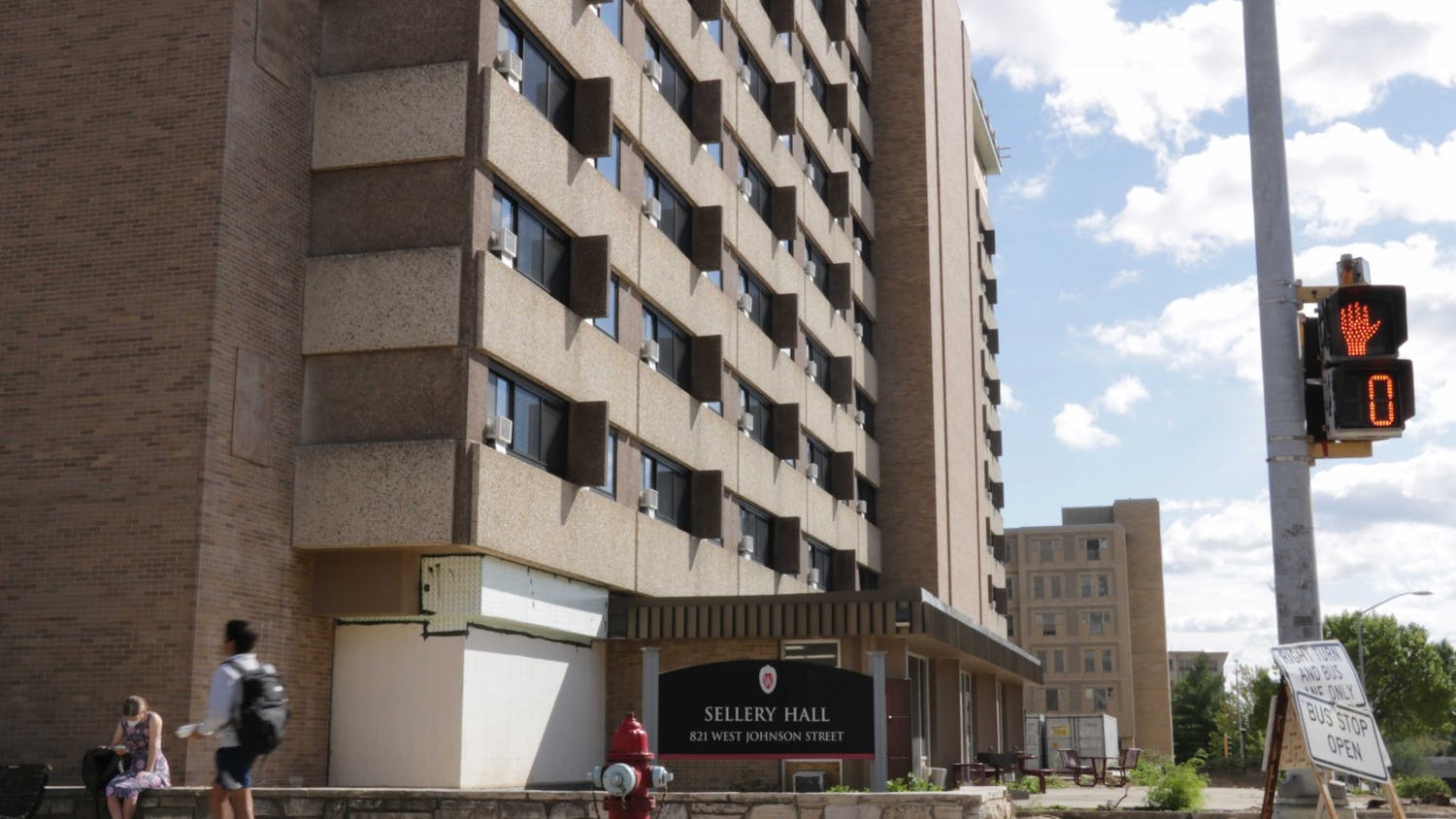Leaders of University of Wisconsin-Madison food pantry Open Seat say they are unprepared to meet surging demand for their services amid federal uncertainty around Supplemental Nutrition Assistance Program (SNAP) benefits, limited capacity and lagging university support.
“The Open Seat was created to provide some essential relief,” Grace Van Voorst, Open Seat’s internal director, said. “We were never meant to solve food insecurity or to be the university’s safety net for students.”
Open Seat fills an essential role as the only food pantry on campus, serving 2,584 households in the community by providing pantry staples and grocery distribution. In the last two years, the number of households Open Seat has served has increased by nearly three times, with the pantry serving 913 households in September 2023.
“Right now, a handful of student employees are doing the work of a university,” Van Voorst said.
Then, the Trump administration refused to pay out SNAP benefits during the federal government shutdown. Although a court order forced the Trump administration to ultimately deliver SNAP funding after withholding payments for six days, Van Voorst said student employees like herself are still overtaxed and undersupported.
“We’re operated by five part-time student employees with a pretty small budget and a very limited storage capacity.” Van Voorst said. “We are really proud that we're able to serve as many students as we can, but that model isn’t really sustainable.”
Currently, Open Seat is partially funded through student segregated fees. UW-Madison’s student government will consider legislation Nov. 12 to establish a full-time Open Seat professional staff member. The resolution states that during the SNAP benefit delays, the university promoted Open Seat as a primary solution without first coordinating with Open Seat. The resolution calls for better emergency communication between The Office of Student Assistance and Support and Open Seat leadership in the future.
Gov. Tony Evers restored SNAP benefits for Wisconsin residents on Nov. 7. The loss of SNAP benefits heightened the importance of safety nets, such as food pantries, across the country, including at UW-Madison.
“[Open Seat] aim[s] to ensure that students can focus on their studies and success rather than their next meal,” Van Voorst said. Opened in 2016, the student-run pantry is available to any UW-Madison student.
Open Seat gets deliveries from the Second Harvest Food Bank of Southern Wisconsin, an organization that stocks many of the food shelves around Madison. Van Voorst said the amount Open Seat can order has been limited due to high demand from other regional pantries.
“Food shelves around Madison are really bearing the brunt of the current crisis,” she said.
According to Van Voorst, Open Seat has had shortages on essential items like milk, eggs or bread when they’re in between deliveries. The pantry has had to put quotas on certain items in response to increased demand.
Open Seat experienced these shortages before the uncertainty around SNAP benefits. “A lot of students are losing a critical safety net,” Van Voorst said. “But we also have to recognize that a lot of students haven't had that safety net to begin with.”
Van Voorst highlighted that international students, who are ineligible for federal aid, are susceptible to food insecurity as well, and that the issues were institutional.
In a Nov. 4 letter, Open Seat communicated their need for greater support, both charitably and institutionally. The letter “advocate[s] for institutional solutions for students facing food insecurity,” calling on UW-Madison to make a greater effort in addressing food insecurity on campus.
For years, leaders of Open Seat and other campus advocacy organizations have called for more “basic needs” resources for UW-Madison students.
Darcy Wittberger with Student Affairs said they were “fast-tracking” a fundraising page for the Campus Food Access Fund in an emailed statement to The Daily Cardinal. Money donated to the fund goes towards Open Seat and the Badger Fare Food Access Program.
The Food Access Fund is the main resource Open Seat uses for their food budget. They also receive in-kind donations through retailers, although Van Voorst said those are the smallest portion of their budget. The organization uses segregated student fees to cover non-food buying expenses.
The exponential spike in demand has strained Open Seat’s already limited staffing, storage space and funding. Van Voorst said she had put in well over 30 hours of work in preparation for the shutdown of SNAP benefits.
“Right now, a handful of student employees are doing the work of a university,” she said.
For students facing food insecurity, Van Voorst recommended the Basic Needs team support page where students can locate resources, including Open Seat, that provide access to food, hygiene products and more.






